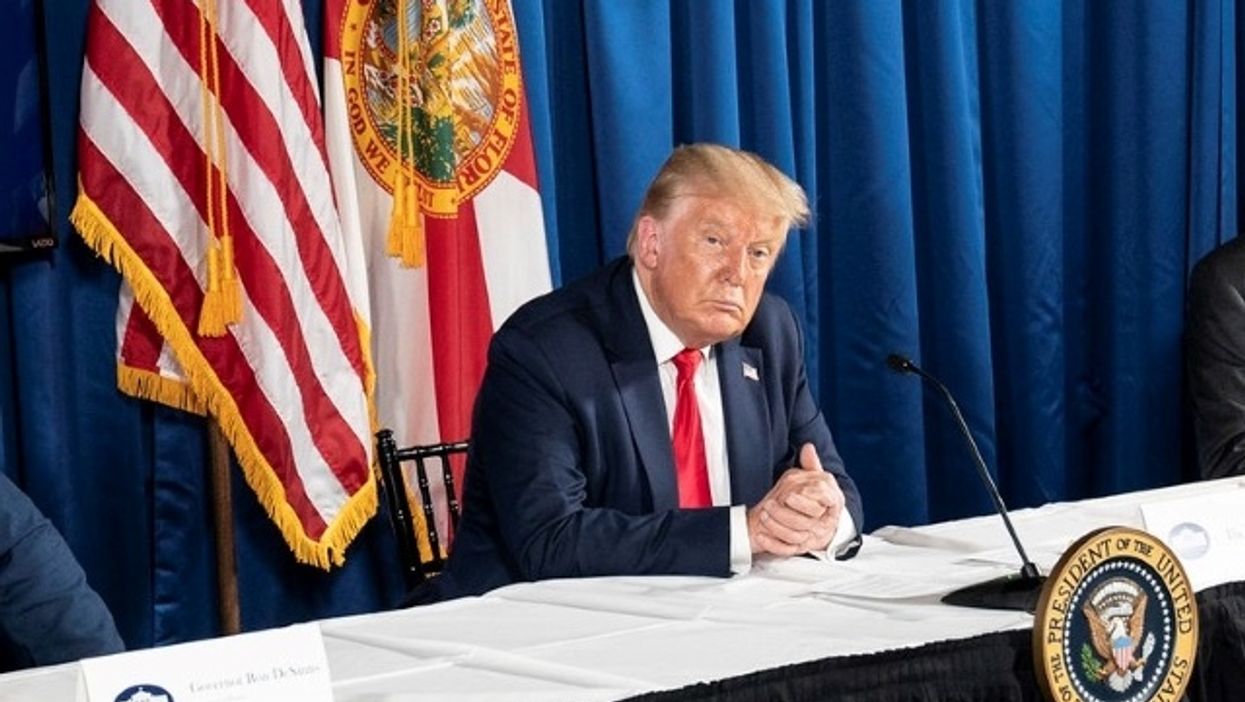
Donald Trump on Monday described states with Democratic governors as "very bad states."
During a meeting with tech workers at the White House, during which Trump signed an executive order on hiring "American," Trump claimed that Democrats had run "some very bad states" and "very bad cities," adding that he didn't want to reward any of them with relief funding for supposedly "doing a bad job" on their coronavirus response.
Cases have spiked in a number of states, including those run by Republicans, in recent weeks.
Twenty-four of the 50 states in the United States have Democratic governors who represent millions of people. There are states led by Democrats in all regions of the country, including on the East and West Coasts, the Midwest, and in the South.
From an August 3 press availability:
DONALD TRUMP: Democrats have run some very bad states and some very, very bad cities. And a lot of people don't want to give them a trillion dollars to reward them for doing a bad job.
If you look at some of the states, I won't insult anybody by naming those states, but you know what they are.
Published with permission of The American Independent Foundation.
- Mitch McConnell's True Colors - National Memo ›
- Seeking To Slash Services, McConnell Rejects 'Blue State Bailout ... ›








